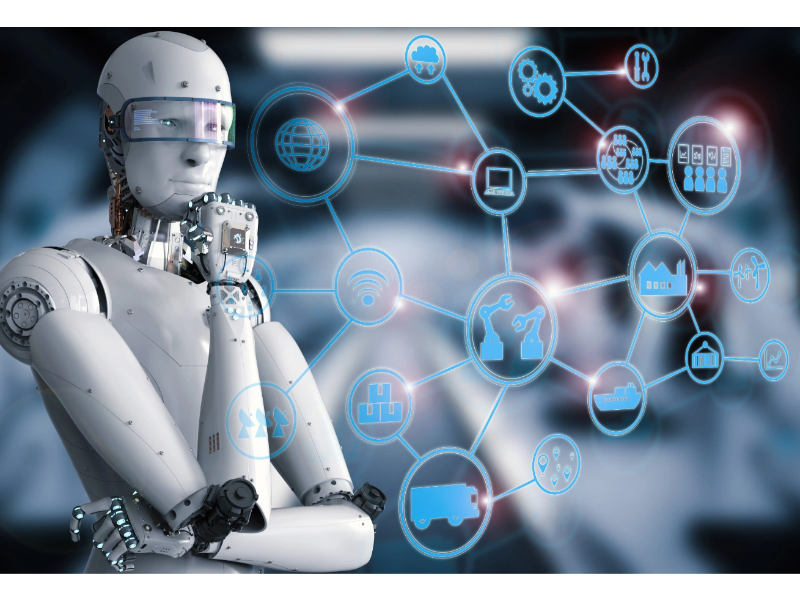- AI has a huge role to play in the financial services industry in terms of efficiency, personalisation of products and services, and enhanced risk management. AI has changed many aspects of the healthcare industry, from diagnosis and treatment to patient care and management.
- AI has had a positive impact on productivity, quality control, equipment maintenance, and overall operations management in manufacturing.
- AI improves traffic flow and increases road safety and efficiency. AI can deliver customised content to students, making learning more efficient.
Artificial Intelligence (AI) is increasingly reaching out to all industries, transforming the way work is done, business processes, consumer interactions, and product and service innovation.
Also read: Artificial intelligence (AI) in everyday life
Financial services
AI is used in the financial services industry for risk management, fraud detection, automated trading systems, customer service optimisation and more. For example, machine learning models can analyse large amounts of transaction data and quickly identify anomalous behaviours to prevent fraud; AI-powered chatbots can provide 24/7 customer advisory services.
AI can continuously monitor and analyse trading behaviours to ensure compliance with legal and regulatory requirements, such as anti-money laundering (AML) and know-your-customer procedures (KYC). The application of AI has driven innovation in financial products, such as AI-based insurance pricing models and personalised portfolio management services.
Also read: Partnership opportunities in the AI stock market
Healthcare
The application of AI in the healthcare industry is growing rapidly, especially in disease diagnosis, personalised medicine, drug development and patient management. AI can help identify disease patterns and support doctors in making more accurate diagnoses.
AI has been shown to exceed the accuracy of human experts in processing and analysing medical images (X-rays, CT scans). Using wearable devices and remote monitoring technology, AI can monitor a patient’s health in real-time, providing timely warnings of abnormal states and early medical intervention.
Retail
AI can analyse consumer behaviour, predict consumption trends, optimise inventory management and provide a personalised shopping experience. AI can enhance the relevance and attractiveness of advertisement placement, thereby increasing the return on advertising (ROI).
In brick-and-mortar shops, AI can enhance the customer shopping experience through technologies such as smart mirrors and virtual fitting rooms. AI-powered chatbots and virtual assistants can provide responsive customer service, handling tasks such as order enquiries, returns and exchanges.
Manufacturing
The main applications of AI in the manufacturing industry are production process automation, quality control, equipment maintenance prediction, and supply chain management. Through machine learning and sensor data, AI can predict equipment failures and reduce downtime.
AI can also improve product quality and productivity by monitoring production lines in real-time. By monitoring equipment and environmental sensors, AI can monitor harmful gases or unsafe operating practices in real-time, warning employees in time to prevent accidents.
Transport
AI is transforming transport, including self-driving vehicles and intelligent transport systems. Autonomous driving technology, which uses AI for environment awareness, decision-making and motion control, is expected to significantly improve road safety and traffic efficiency soon. AI is also used in the shipping and aviation industries to optimise route planning and fleet management.
Education
The application of AI in education is expanding to include personalised learning plans, intelligent tutoring systems, automated assessments and learning resource management. By analysing students’ learning habits and performance, AI can provide customised content to make learning more efficient.

